

Letter From the Managing Editor

Hello Patriots!
My name is Ally Kennedy, and I am so excited to introduce myself as the new Managing Editor of The Patriot. I am a sophomore, majoring in Creative Writing and minoring in Journalism. A fun fact about me is that I am a commuter and don’t live on campus. So, when I am not driving, in class, or working on The Patriot, you can usually find me reading, writing, watching movies or spending time with my friends.
I joined The Patriot during my first year of college, and from the moment I got involved, I fell in love with it. I have always dreamed of being a journalist, but there is a difference between dreaming of something and actually doing it. Getting to share stories that matter and being able to give students a voice made me feel like I was doing something meaningful. While I loved being a writer, when the opportunity to become the Managing Editor presented itself, I knew I had to take it, even though it terrified me.
I have always been more introverted and have tended to work behind the scenes, but I had to take the risk in applying for this position. I knew there was a chance I would not get chosen, but for my own sake, I had to try. And I am so thankful I did not allow my fear to talk me out of it. The Patriot is such an important pillar on this college campus, where students are encouraged to share their voices and take part in building something worth reading. This newspaper has always been important to me, and I am committed to doing whatever it takes to help our paper flourish and continue its legacy.
We are always looking for volunteers. Whether you have a passion for writing, photography, social media, layout, or graphic design, there is a place for you here. This is a newspaper created by students and made for students, and we would love for you to join us. If you have any questions, please email us at thepatriot@ucumberlands.edu. I am so excited for this year and cannot wait to see what this year holds for The Patriot.
Until next time, Ally Kennedy
Staff
Editor- in- Chief Filippa Malmström
Managing Editor
Ally Kennedy
Staff Writers
Katrina Campbell
Jillian Cross
Sydney Dingus
Eli Dunn
Lily Fabela
Ximena Melendez Hernandez
Taylor Moren
Alicja Sedlak
Sydney Taylor
Zak Willis
Emily Zecchini
Diana Ziegler
Staff Photographers
Kurstyn Ison
Abigail McKamey
Faculty Advisor
Jeremiah Massengale
PHOTO BY KURSTYN ISON
Dr. Larry Cockrum Receives 2025 SOAR Award
The 2025 Shaping Our Appalachian Region Award, also known as the SOAR Award, was presented to the University of the Cumberlands President, Dr. Larry Cockrum. This honor is bestowed upon leaders who have strengthened the Appalachian region. Cockrum has done just that by serving the university for 20 years. During that time, he has overseen significant growth and change on campus. President-elect Dr. Quentin Young presented the award on behalf of the nonprofit organization Shaping Our Appalachian Region. In his speech, Young honored the legacy that Dr. Cockrum will leave behind. When accepting the award, Cockrum reflected on his time at Cumberlands and credited others for the university’s success. He remained humble, choosing not to highlight his own accomplishments but instead those of the people around him. Although he is stepping down as president, his impact will endure.
Students Honors Charlie Kirk with Peaceful Vigil
Campus Local
University of the Cumberlands students gathered at Patriot Park on Monday, Sept. 15, 2025, in honor of Charlie Kirk. Unlike many other campuses that used the time to protest, UC students chose to pray. This was not a political agenda. There were no demonstrations or disagreements, only an understanding that this violence must end. According to the Ground News article, Alyssa Crum, organizer of the vigil and a member of the newly formed Turning Point USA chapter, said that the group’s mission aligned with Kirk’s ideas.
Cruce Named East
Tennessee Collegiate Champion
The University of the Cumberlands women’s golf team kept its fall season rolling with a victory at the East Tennessee Collegiate. The tournament was held at Johnson City Country Club, which was in excellent condition, and the team expressed hope to return next year. The Patriots won the six-team NAIA field with a two-round score of +12 to claim the team title. Ainslee Cruce led the way with rounds of 72 (even) and 71 (1 under) for a 36-hole total of 143, just three strokes off the program record. Her steady play and 11 birdies earned her the first individual title of her collegiate career. Cruce earned first place and was crowned the East Tennessee Collegiate champion.
Dr. Sonal Sagar Boda Wins 2025 Best Ph.D. Thesis Award
Dr. Sonal Sagar Boda, a recent University of the Cumberlands Ph.D. graduate in Information Technology, has been named the 2025 Best Ph.D. Thesis Award recipient by the International Universal Innovators Leadership Awards. The awards are presented in partnership with Springer LNNS and a coalition of academic institutions across Europe.
His dissertation, Exploring Software as a Service Security Architecture: Challenges and Considerations, was selected from a competitive pool of global submissions. Dr. Boda’s qualitative study addresses a critical gap in SaaS security literature by capturing the experiences of IT professionals working within complex systems. His findings provide practical guidance for decision-makers navigating challenges such as access governance, third-party integrations and compliance in multi-tenant environments. These are significant issues that are increasingly important in today’s digital landscape. His award-winning research is already shaping industry best practices. In addition to his role at Cisco, Dr. Boda serves on editorial boards, mentors early-career engineers through IEEE initiatives, and frequently judges international innovation and hackathon competitions.
UC Patriots Dominate NAIA Academics
UC Patriots Athletic Department is one of the most successful student-athletes in NAIA, setting multiple records within their sports and the classroom. During NAIA National Awards Day, UC athletes were recognized for posting the nation’s best GPA at 3.39 for the 2024-2025 school year. Of the 29 teams that earned at least a 3.0 GPA, 27 teams earned NAIA Scholar-Team honors, and 15 teams finished with a 3.5 or higher. Women’s tennis and men’s swimming and diving posted the highest GPAs for the Patriots, with women’s tennis leading at 3.90. Both teams were honored with the Women’s and Men’s Academic Awards at the PATS Awards. Women’s basketball, women’s lacrosse, and women’s soccer also topped a 3.70 GPA. In the spring semester, 18 Cumberlands teams recorded a team GPA of 3.5 or higher.
Downtown Corbin Hosts Annual Oktoberfest
CORBIN, Ky. — The annual Oktoberfest is returning to Downtown Corbin on Saturday, Oct. 11, 2025, from 10 a.m. to 5 p.m. The event is free and open to the public. The day will feature the Cumberland Valley Cruise-In with a variety of cars on display, the Whitley County Farmers’ Market with local farmers and craft vendors, and Vendor Alley along 1st Street with additional arts, crafts, and food trucks. Families can take part in children’s games, a bounce house, a slide, and a petting zoo. Gary’s Sound Machine will provide live music, and Harvey’s On Main will host seasonal activities. The festivities will take place across Main Street, 1st Street.
New Childcare Program Launches in Williamsburg The Next Chapter Closes Doors
WILLIAMSBURG, Ky — Williamsburg Independent School District, University of the Cumberlands and Main Street Baptist Church have partnered to expand access to childcare and early education for local families. The program will serve children from birth to age five. Under the partnership, Williamsburg Independent will oversee the program, Main Street Baptist will provide the space, and the university will contribute financial support. Main Street Baptist Church is remodeling its facility for the children.
Affordable childcare and early learning opportunities are often difficult to find in this region. This new program was created to ease the burden for many families. University of the Cumberlands values serving others, so this program aligns with their mission of helping others. “Strong communities are built on strong partnerships, and this one is rooted in a shared commitment to serve,” President-elect Dr. Quentin Young said. Once launched, the program is expected to strengthen and support youth in the community.
WILLIAMSBURG, Ky — After just five months, The Next Chapter Bookstore on Main Street is closing its doors, marking an unexpected end for the short-lived local favorite. Williamsburg’s local bookstore opened its doors on May 1, welcoming book lovers eager to browse and buy their next great read. In addition to selling books, The Next Chapter hosted community events such as book clubs. While many residents are sad to see the store close, its impact will remain. Sustaining an independent bookstore is no simple task. Rising costs, limited foot traffic in a small town, and competition from online retailers have created challenges too steep to overcome. The closure of The Next Chapter reflects a broader issue occurring across the nation. For now, the storefront remains empty with a “For Rent” sign in the window, a reminder of the business that brought a spark of literary life to downtown Williamsburg.
What Surprised First-Year Students Most in Their First Month? First-Year Fresh Eyes Student Life

BY: JILLIAN CROSS STAFF WRITER
For many first-year students, the first month on campus feels like stepping into a new world. The whirlwind of move-in day and orientation quickly gives way to a new routine filled with classes, dorm living, activities and exciting but sometimes overwhelming opportunities. While every first year comes to the University of the Cumberlands with expectations, unexpected discoveries often define the first month.
One of the most welcoming aspects of UC is the variety of activities and Bible study opportunities. First-year student McKenna Marksberry said that was her biggest surprise. “I found most surprising the amount of activities around here you can participate in. Whether it’s Bible studies or sport events, there’s so many fun things you can be a part of,” Marksberry said. For many students, extracurriculars are where friendships begin. Marksberry has already found herself involved in communities she didn’t anticipate before college.
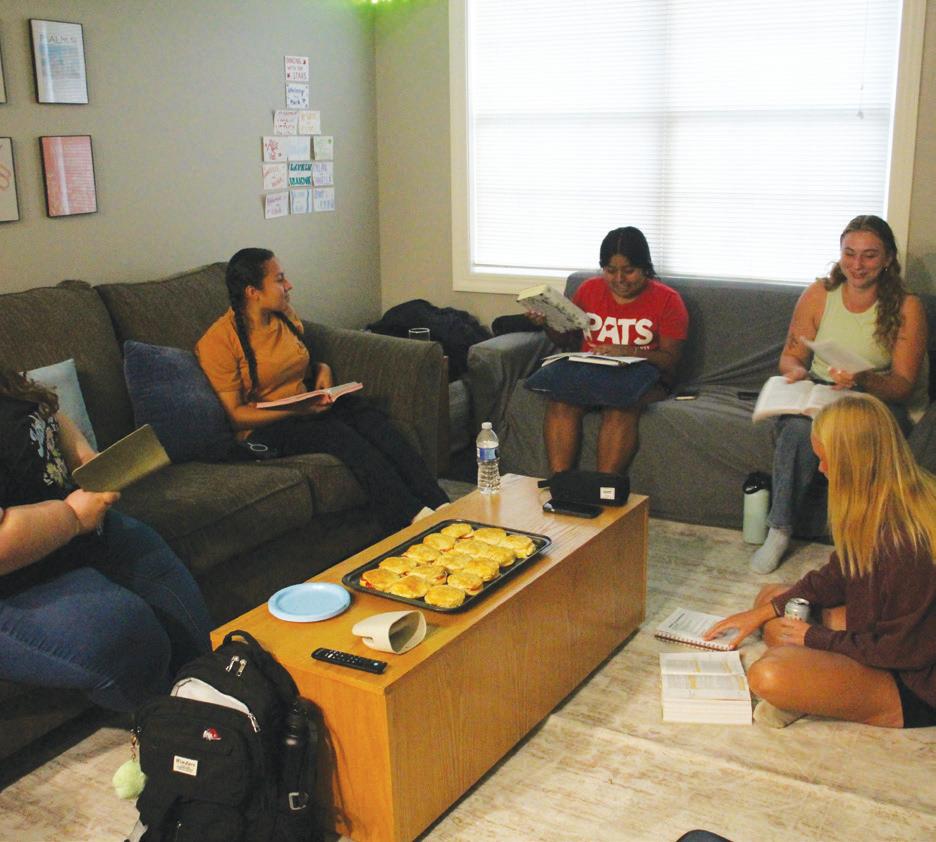
Another factor that many students appreciate is how approachable professors are. Each professor wants students’ experiences to be positive and wants to give them every chance to
succeed. Incoming students often expect college faculty to be intimidating, but Marksberry, a psychology major, found the opposite. “Most of the professors here are extremely laid back and understanding. Just communicate with them,” she said. That approachability can be a lifeline for new students navigating their first semester.
The size and setup of the campus make daily life easier to manage. “Everything here is very convenient and easy to get to,” Marksberry said, emphasizing that accessibility on campus makes way for comfort in a new environment. Dorm life, often a source of anxiety for new students, has been a highlight for her.
Marksberry said the girls in her hall, Archer Hall, are “very kind and considerate. Everyone picks up after themselves. The dorm itself is also really nice, especially the kitchen.” The staff and resident assistants at Cumberlands work hard to ensure first year students have the best experience possible.
Still, the first month of college is rarely without its challenges. Adjusting to new academic expectations, building a social circle and managing time away from home can leave students caught off guard. For Sam Arnold, a health and physical education major, juggling responsibilities while staying involved has been the biggest adjustment. “As an incoming freshman at UC, I would say something that you should be considering is time management, whether that is getting to class on time or turning in your assignments,” Arnold said. “Here at UC, most assignments are due Wednesday or Sunday, which might not seem like an issue, but the Wednesday due days are tough, especially coming off a long weekend.”
He also pointed out that smaller class sizes make the academic transition easier. “For the most part, your class sizes are much smaller than those of a major college. That helps you ask questions during class and get to know your classmates well, so when you have a group project, you know how each person learns,” Arnold said. Social life, he added, has been another pleasant surprise. “It surprises me how involved students are in clubs
and activities on a day-to-day basis. Everyone seems to have an activity that they enjoy doing post-class,” he said. Intramural sports, clubs, and campus events like volleyball games have been easy ways to build community. “Most people love going to volleyball games here; that brings a great environment,” he said.
Regarding advice for future students, both Marksberry and Arnold emphasized balance. Marksberry stressed the importance of communication and community, while Arnold pointed to structure. “Study time is key to success in college,” Arnold said. “Balancing it so far has not been much of an issue. Just keep a schedule, and you should be just fine.” One month in, UC’s first years have already learned that the transition to college is more than moving into a dorm or finding their classes. It’s about managing time, making new connections and balancing independence with responsibility. Alongside those challenges come encouraging moments: supportive professors, welcoming classmates and the realization that campus quickly begins to feel like home. The first month’s lessons may be unexpected, but they set the tone for everything still to come.

PHOTO BY ABIGAIL MCKAMEY
PHOTO BY ABIGAIL MCKAMEY
PHOTO BY ABIGAIL MCKAMEY
Campus Life
Swingin’ the Night Away

BY: SYDNEY DINGUS STAFF WRITER
The University of the Cumberlands is home to a dance group that has become popular among a diverse group of students. The group practices and enjoys several styles of dance, including English country, square and swing. The Potato Hoppers meet every Thursday night from 9 p.m. to midnight in the gymnasium of Main Street Baptist Church.
Cumberlands students have opened the club to the entire campus, as well as alumni and off-campus friends. Some local “Potato Hoppers” bring their siblings, and a few students even invite significant others from out of town for a night of dancing. Ethan Hanley, a dual credit student at Cumberlands, said, “This is my third time here. My brother, Reese, comes to dancing like every single week. He says it’s pretty great and he’s been trying to teach us some of the dances”.
The swing dancing club has a unique origin, Isaac Childers, President of The Potato Hoppers, said it started “last October when a group of us went out to watch the Northern Lights.” He and a few friends parked in a church parking lot, hoping to catch a glimpse of the Aurora Borealis. Childers said they gave up looking and were about to go when he and Aaron Barnes discovered their shared knowledge of English country dancing. Barnes said, “We were in my convertible that night; so, I just cranked the roof down and we were just blasting Irish jigs at like 2:00 in the morning... and after we finished dancing, our friends were like, we’ve gotta do this more often”.
Over the next few weeks, Childers, Barnes, and a growing group of friends met sporadically in the parking lot behind the Hutton School of
Fellowship, Fun and Footwork

Business building to dance late into the night. As more students joined in and the temperature dropped, they started searching for an indoor space.
The club name came about once they decided to become official. “So, the idea was that with an actual name for the group, we would have the school’s approval to actually dance in the gym or something, but that didn’t happen,” Childers said. Still, after Barnes spoke to Josh Hatfield, director of Intramurals, and completed some paperwork, the club was officially formed.
Ashley Tucker, a Cumberlands alumna and staff member at Main Street Baptist Church, said she was convinced to try swing dancing by her friends and her brother. When Childers reached out to the church’s pastor about using the gym, Tucker was asked to open the church for the group.
The Potato Hoppers take turns teaching new dances. They start slowly, walking through the steps, then add music once everyone is ready. After a few songs, someone in the group shares a short Bible devotional, followed by more dancing.
UC student Danielle Kruger said that she visited the club in the past but didn’t start dancing regularly until recently. “I really enjoy the different dances and especially enjoy listening to [songs like] “Marri’s Wedding” and “Dulaman,” she said.
Cumberlands senior Sarah Kirby said she was hesitant to join because of how Childers first invited her. “Considering the way that Isaac told me about it, was ‘Come to the back of Hutton School of Business at night and find out,’ I wasn’t about to [come to dancing] But I’ve been coming here since last year and it’s like one of the things that I look forward to every week.” Kirby said that dancing every week has positively impacted her
mental health and has helped her build stronger friendships. “If you’re comfortable enough to dance with someone, you’re comfortable enough to say ‘Hey’ when you see them [on campus],” Kirby said.
For UC junior Ellie Van Neste, one of the most impactful aspects of attending the weekly dances is spending time with her friends in such an inclusive community. Van Neste said, “I love this club because it is just so inclusive, and we have so many people from so many different walks of life who love to just have a good time and dance and meet new people.” Dancing with the Potato Hoppers is a fun and energetic way to make new friends, whether attendees are beginning dancers or not.
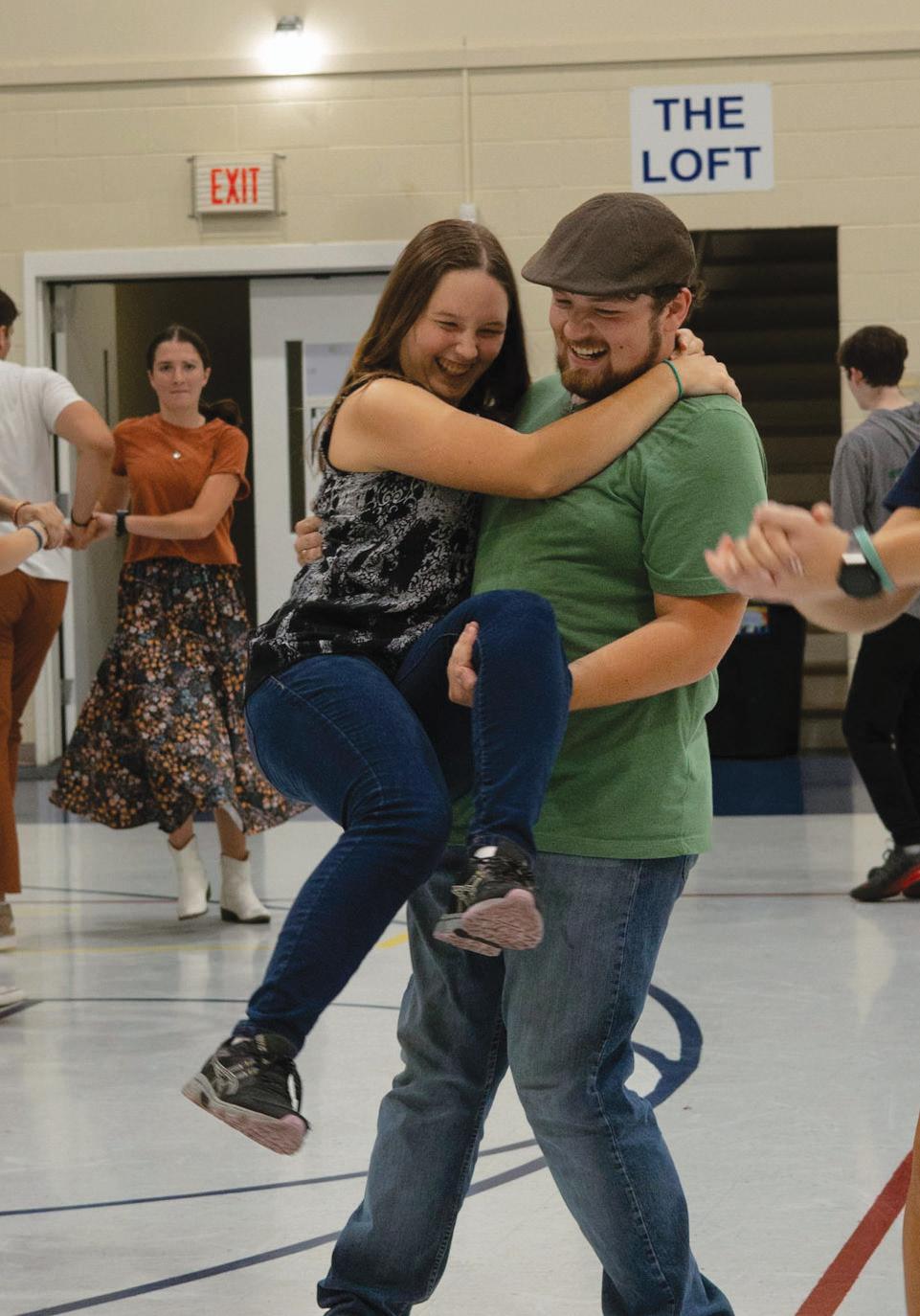
PHOTO BY KATRINA CAMPBELL PHOTO BY KATRINA CAMPBELL
PHOTO BY KATRINA CAMPBELL
College Students Making a Difference
BY: KATRINA CAMPBELL STAFF WRITER
SGA and Education Club Welcome ACH Students
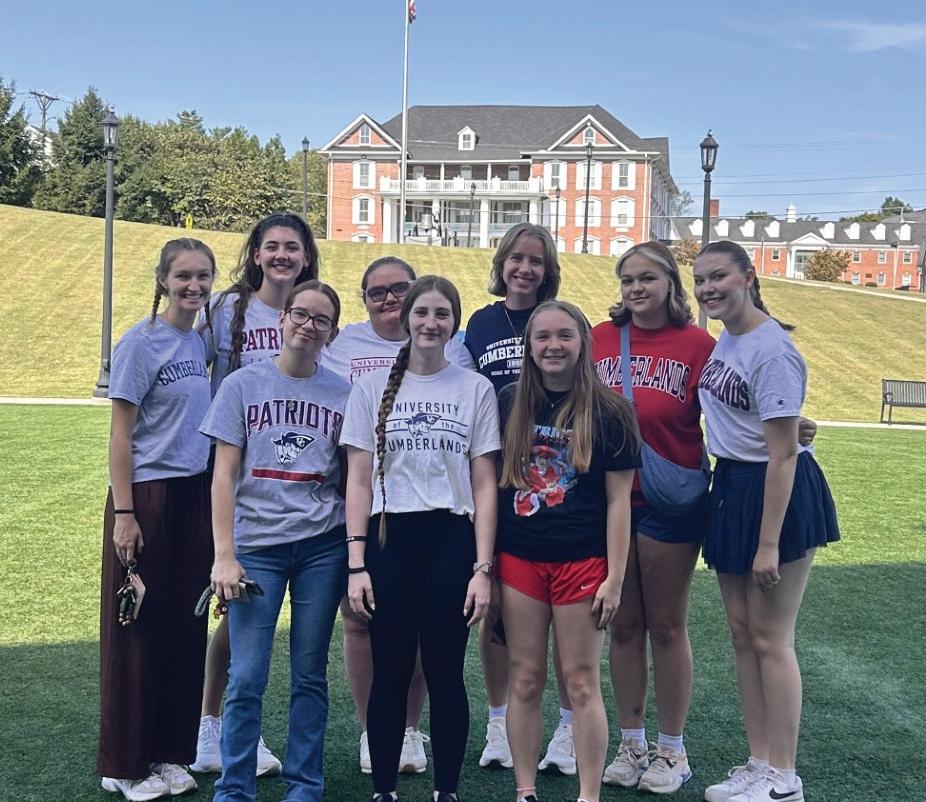
On Saturday, Sept. 5, Appalachian Children’s Home students boarded a bus to the University of the Cumberlands, where they would receive campus tours, free lunch and entry into the Cumberlands’ football game that afternoon.
Appalachian Children’s Home (ACH), located in Barbourville, Kentucky, is a rehabilitation center that provides a safe and nurturing environment for children to heal and grow. The home aims to promote positive development through personalized instruction and therapy to prepare children for a successful life when they return home.
Makayla Haar is Chair of Community Outreach for the Student Government Association (SGA). Haar is responsible for strengthening the relationship between the student body and the local community. Therefore, she was the head of this service event, coordinating with the staff of ACH and Cumberlands to ensure a safe and successful afternoon. Haar, amongst others, coordinated a successful afternoon of service and guidance for the students of ACH.
“Without the trust and support from our SGA cabinet members, supervisors and the Education Club, this event wouldn’t be possible,” Haar said.
Reflecting on the day, Haar said, “I believe this day positively impacted the children and volunteers alike, as they all left with smiles on their faces.” The event began in the afternoon, with the children and volunteers sharing lunch and conversation. Afterward, volunteers and students split into two groups to tour the campus.
The groups reconvened to venture toward the football field, where they met football players and cheerleaders following the game. Before they left, the students got photos to take back with them, snacks, a free shirt and a gator to commemorate their time at the University. This is not the first time that the University of the Cumberlands has hosted Appalachian Children’s Home, and “With such great turnout and feedback, SGA plans on doing
this event again next year,” Haar said.
However, this was the first time SGA collaborated with the Education Club to host an event. Gracie Mason, secretary of the Education Club, revealed that the two clubs did not initially plan to collaborate for this event. Yet, when Haar personally reached out to ask for Mason’s assistance on the event, Mason eagerly rounded up additional volunteers from the Education Club to help. Mason said, “Being a teacher extends past the classroom, and we are eager to learn from any experience.” Mason was correct; nine volunteers from the Education Club assisted SGA members throughout the afternoon. Although the Education Club has its own service projects throughout the year, these future teachers jumped at the opportunity to serve students.
“We did not know the background of these students, but we know we want success for them, and conversations and connections are vital in that,” Mason said.
With that caring attitude, Mason, alongside fellow Education Club and SGA members, paraded around the campus with 11 ACH students, striking up conversation, bonding over their love for Chick-fil-a, and cheering on the Pats football and cheerleading teams. At the end of the day, the students walked away with more than the eye could see; they left with new memories and connections to a place they might one day call home.
Students Unite for Unplugged
A Faith-Filled Night of Praise at UC
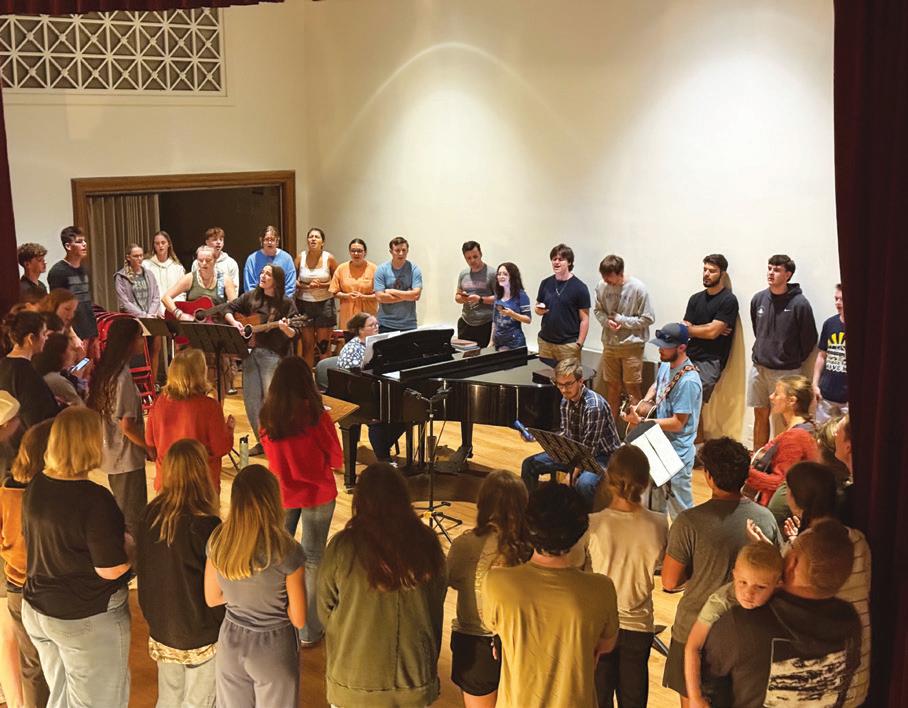
PHOTO BY KURSTYN ISON
BY: ELI DUNN STAFF WRITER
On Sept. 25, the Missions and Ministry department and the University of the Cumberlands Worship team hosted a new “Unplugged Worship Night” from 8:00 to 9:00 p.m. at the Gatliff Chapel, drawing many students. The event centered around intimacy with the Lord, the Word, and musical worship during the scheduled hour and even after. Organizers also shared news just before worship began. The night was a new type of setting for the Missions and Ministry department, which successfully attempted to make an atmosphere that was not as rigid and instead, focused on a more free-flowing type of worship.
Before the worship night had even started, the Missions and Ministry department had set up fire pits right in front of the Chapel, while offering snacks and time with the community. UC sudent, Christian Dingus, discussed his thoughts on this different type of worship night and the tone it brought to campus.
“This is a great way to cultivate a community of believers on campus,” Dingus said.
As the worship night started, students got welcomed by an announcement from Jay Bourne of the communications department. Bourne spoke about some important news that centered around both the ministry and communications majors. He announced publicly that both these majors are going to make another emphasis area in the ministry department, in which you can take communication classes and have it added to the new emphasis area. This new emphasis allows for more opportunities for jobs for the student body, as well as teaching ministry students how to promote their faith to bring more people to the Gospel.
Once this had taken place, the Ministry department jumped into the service where more wellknown worship songs were played. Yet the difference in this worship night compared to the others was that this night was more interactive. Students were encouraged, if they wanted, to come upon the stage, near the music, and to worship. This brought a more prominent intimacy to the congregation.
“This type of worship night brings intimacy and is an unconventional way to worship,” said Rachel Li, associate campus minister. It was important for the ministry department to include a devotional time in the midst of the worship set list. Doing this was a way to center everyone’s hearts in the right way. Later that night, though the worship had officially ended, the students kept singing, and the music did not stop. Scripture readings followed, and voices did not seem to fade out. From 9:00 until after midnight, the worship time at Gatliff Chapel did not end. Student, John Saylor, said the service reminded him of 1 Corinthians 1, where believers are called to be of the same mind and love, all in one accord.
“Everyone was singing and rejoicing, even the people who aren’t as musically inclined, it was one of the coolest things I have seen,” Saylor said. Students and faculty who attended said it was an impactful night. With Fall Awakening approaching, some wondered whether the night could spark a larger movement or remain a onetime experience that participants carry into their daily lives.
With hopes of revivals across campuses nationwide, what happened in the chapel on Sept. 25 offered a picture of persistence in faith, living in the goodness and truth of God and continuing that lifestyle not just within chapel walls but in every place it is needed.
PHOTO COURTESY OF MAKAYLA HAAR
The Legacy of Cumberlands’ Last JV Teams Making the Final Season Count
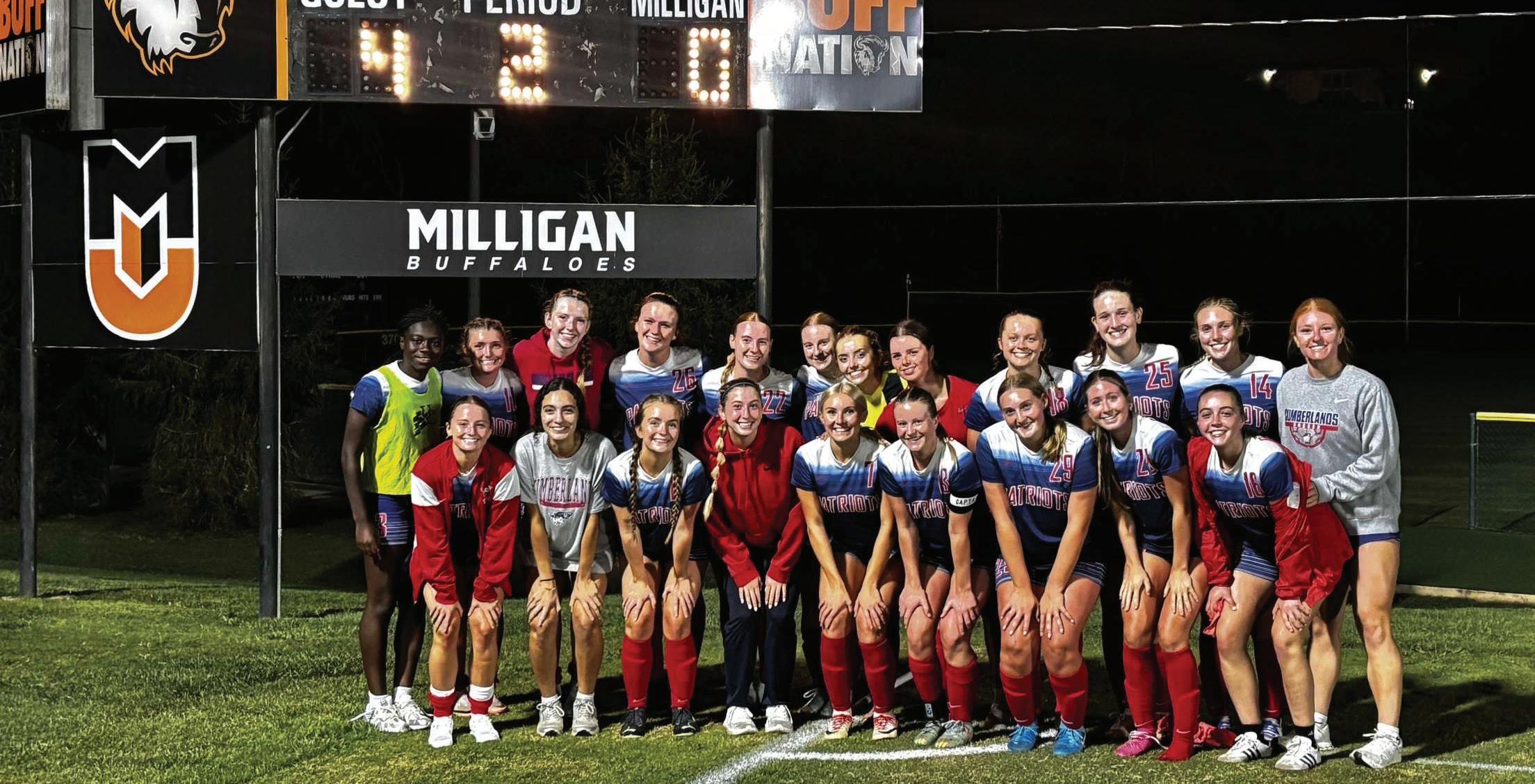
BY: EMILY ZECCHINI STAFF WRITER
After years of planning, the University of the Cumberlands is close to completing a major shift in athletics; all junior varsity teams will be discontinued after this school year. Only three teams remain- men’s soccer, women’s soccer and volleyball.
The decision has been in the works for three years as part of an effort to reshape the student population. “Three years ago, we started to implement a plan that would allow us to continue our tremendous athletic success, while also allowing the campus to be more wellrounded as non-athlete interest in the school increased,” Chris Kraftick, director of athletics, said. “The Cumberlands’ Commitment allowed us the opportunity to slowly reduce the athletic footprint, providing more room for traditional non-athletic students to attend Cumberlands.”
This decision has had a significant impact on junior varsity athletes. Alayna Wilson, captain of the junior varsity women’s soccer team, said she had felt shocked and sad when she first learned of the changes.
Xavier Keck, a senior on the men’s junior varsity team, said the impact has been easier on him since he is graduating this year. “The underclassmen were sadder about the situation because they were put in that awkward situation to either leave to pursue soccer somewhere else
and leave their friends they had made, or stay and stop what they love, which is playing soccer competitively,” Keck said.
Despite the news, team spirit stays strong as theremaining junior varsity teams seek to make the most of their final season.The Women’s JV Volleyball team is as motivated as ever, despite recent news. Players Lilly Sharp and Emily Rainwater reflected on the upcoming season with determination and optimism.
“I feel more motivated. Knowing it’s the last season makes me want to make it the best one,”Rainwater said. Her teammates feel the same way and are working hard to finish strong.
“It has driven me to push my teammates and myself to make our last season the best season,” Wilson said.
Wilson, Keck, Sharp and Rainwater reflected on the wonderful memories they had made while playing for their junior varsity teams. “The sport has meant so much to me, and I have met some excellent people that have become lifelong friends,” Keck said.
Although some see this decision as controversial, it is not necessarily wrong. When asked about the effect he thought this decision would have on school spirit and overall participation in sports, Kraftick said, “We’re in year three of the process, and only JV Soccer and Volleyball remain, and I sense our spirit/energy is tremendous. We’ll still have 28 sports, 775 student-athletes, and we’re the top-performing athletic department in the NAIA.
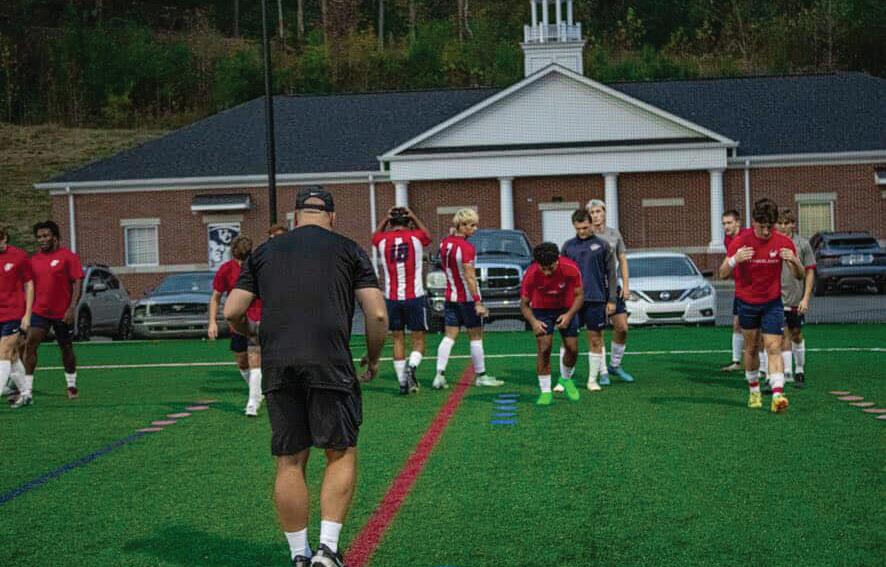
Many schools are envious of our ability to be varsity-focused. Coaches have been intentional about speaking to JV student-athletes well in advance and letting them know of the changes. Most have chosen to stay with no change to their financial package thanks to the Cumberlands Commitment. We have also invested heavily in intramurals and look to have a strong intramural culture on campus. Over the next year, I see that program taking off and becoming a huge part of campus life.”
“I am so lucky that I even had the opportunity to play college sports, even if it was on a JV team. Not many people get to continue playing after high school. And I’m just doing what I grew up loving,” Sharp said.
Coaches have been instrumental in helping junior varsity athletes figure out what their next steps are. Wilson said the coaches have offered endless support throughout the process. They have worked to assist players in transferring to other schools to continue their sport or finding ways to stay involved with varsity programs after junior varsity teams are disbanded.
“Coach Kira does a great job to make sure that the time we have in the gym is put to good use and is constantly building us up,” Rainwater said.
Although junior varsity athletics at Cumberlands will end next fall, students say they will continue to look back on the experiences and friendships with pride. “JV has given me some of the best memories and friends, and I am grateful for every moment of it,” Wilson said.
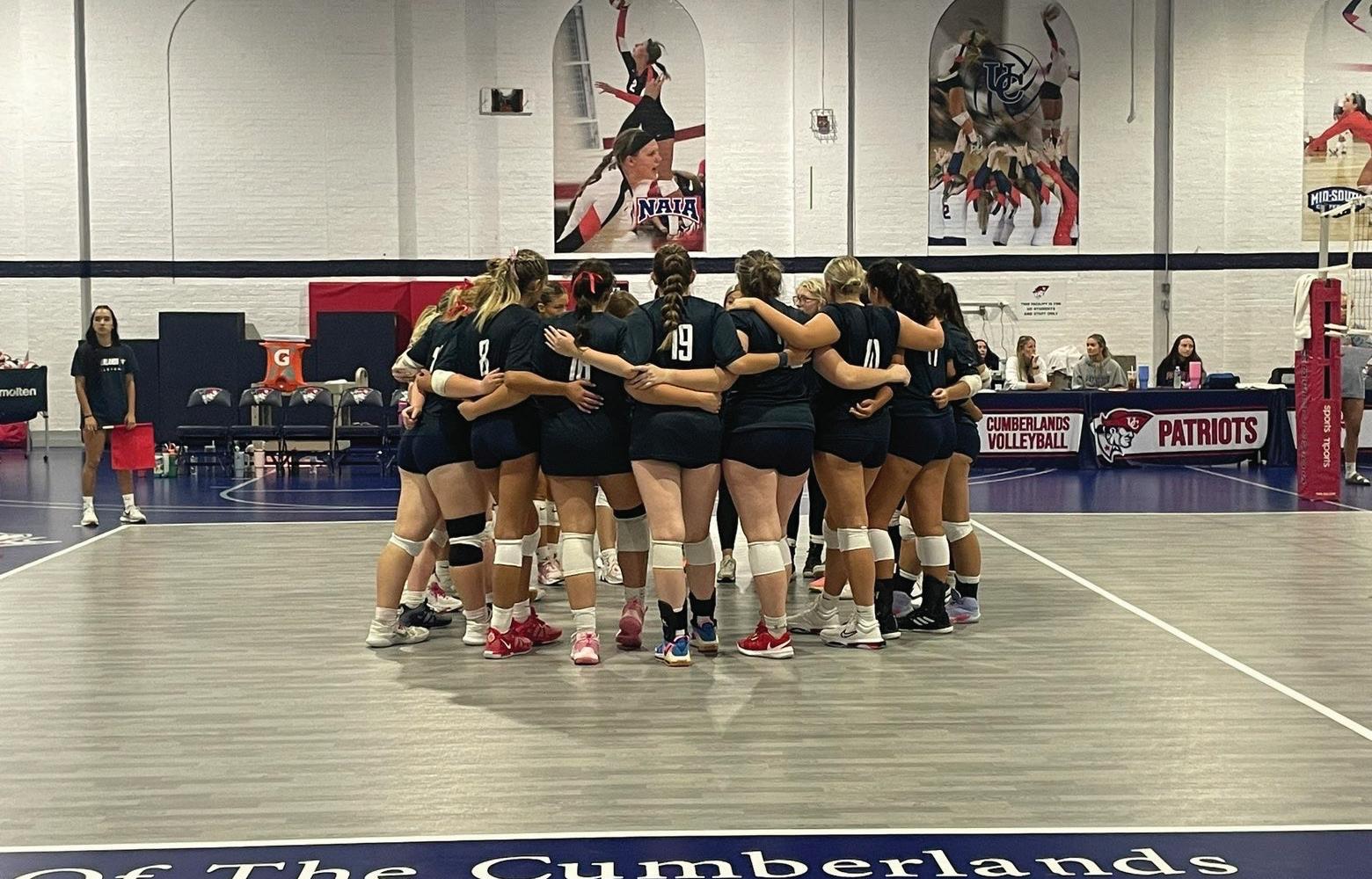
PHOTO COURTESY OF ALAYNA WILSON
PHOTO COURTESY OF XAVIER KECK
PHOTO COURTESY OF LILLY SHARP
When Will AI Cure Cancer?
Researchers Are Using New Technology to Identify New Treatment Pathways

BY: ALICJA SEDLAK & ZAK WILLIS STAFF WRITERS
To those uneducated on the subject of Artificial Intelligence, this question seems absurd. How could AI cure cancer? Like ChatGPT, Gemini, Grok, or Claude? These “chatbots” are commonly used for composing essays, writing code, and performing mathematical calculations, but the idea that AI will eventually end disease as we know it deserves some skepticism. Many critics of AI proclaim that the massive influx of investment capital is evidence of a bubble, or speculative frenzy that will eventually unravel once the hype dies out.
In a recent Reuters article on U.S. tech startups, they claim that the technology will hit a dead-end, much like the iPhone, which now receives a slightly improved camera each year. But would the largest companies on Earth be pouring all their resources into the AI race because of hype?
Would governments be prioritizing AI research as a matter of national security (as seen through the White House’s official AI action plan) if it was a dead-end? Clearly, there is ample evidence that AI is more than a simple chatbot-more than a flash in the pan-- and maybe even the most significant human discovery of all time.
In order to understand why artificial intelligence may be capable of curing cancer, it is necessary to understand what it actually is. Simply put, AI refers to computer systems which perform tasks that typically require human intelligence. At a technical level, most modern AI relies on
machine learning algorithms that analyze vast amounts of data to “learn” and improve over time, often through techniques like neural networks, which mimic the interconnected structure of the human brain to process information in layers. This allows AI to handle complex problems, from translating languages to diagnosing diseases, without needing explicit step-by-step instructions for every scenario.
While this may look like a lot of jargon, the important thing to understand is that AI is very good at finding patterns and associating meaning with those patterns. This, fundamentally, is cognition. Although the philosophical side of this subject will be left for another time, we can simply say that AI has a “brain” but not a “soul.”
So, these “artificial brains” can think, learn, and create, but will they ever conduct research that, so far, the smartest human beings have been unable to do? The answer is, actually, yes. As seen in GlobeNewswire’s article on patterns to test new AI discovered drugs, AI is assisting with processing massive amounts of data and essentially functioning as a research assistant.
In the near future, we can expect these assistants to scale up through improved training on massive datasets and more efficient computing, leading to super agents capable of handling entire workflows in fields like research or business, rapidly accelerating discoveries such as new cancer treatments by sifting through biomedical data at unprecedented speeds. Further ahead, AI may progress toward artificial general intelligence (AGI), where systems achieve human-level versatility across any intellectual
task, reshaping economies by automating most jobs and prompting societies to redefine what “work” even is. This predicted impact is reflected in Kokotajlo’s article “AI 2027.”
As you can imagine, all domains of science will be accelerated by the emergence of AGI—not just medicine. The most transformative stage of this technology will come when a single “agent” is 10-100 times more intelligent than the smartest known human. Meta, OpenAI, Oracle, Amazon, Microsoft and others are spending hundreds of billions of dollars to construct enormous datacenters which will house and train these agents. Oh and, by the way, each new model will be used to train the next model in development. Just imagine 1000 hyper-geniuses teaching 1000 hyper-hyper-geniuses, simultaneously. It is hard to overstate both the benefits and dangers of such technology.
PHOTO GENERATED BY AI
